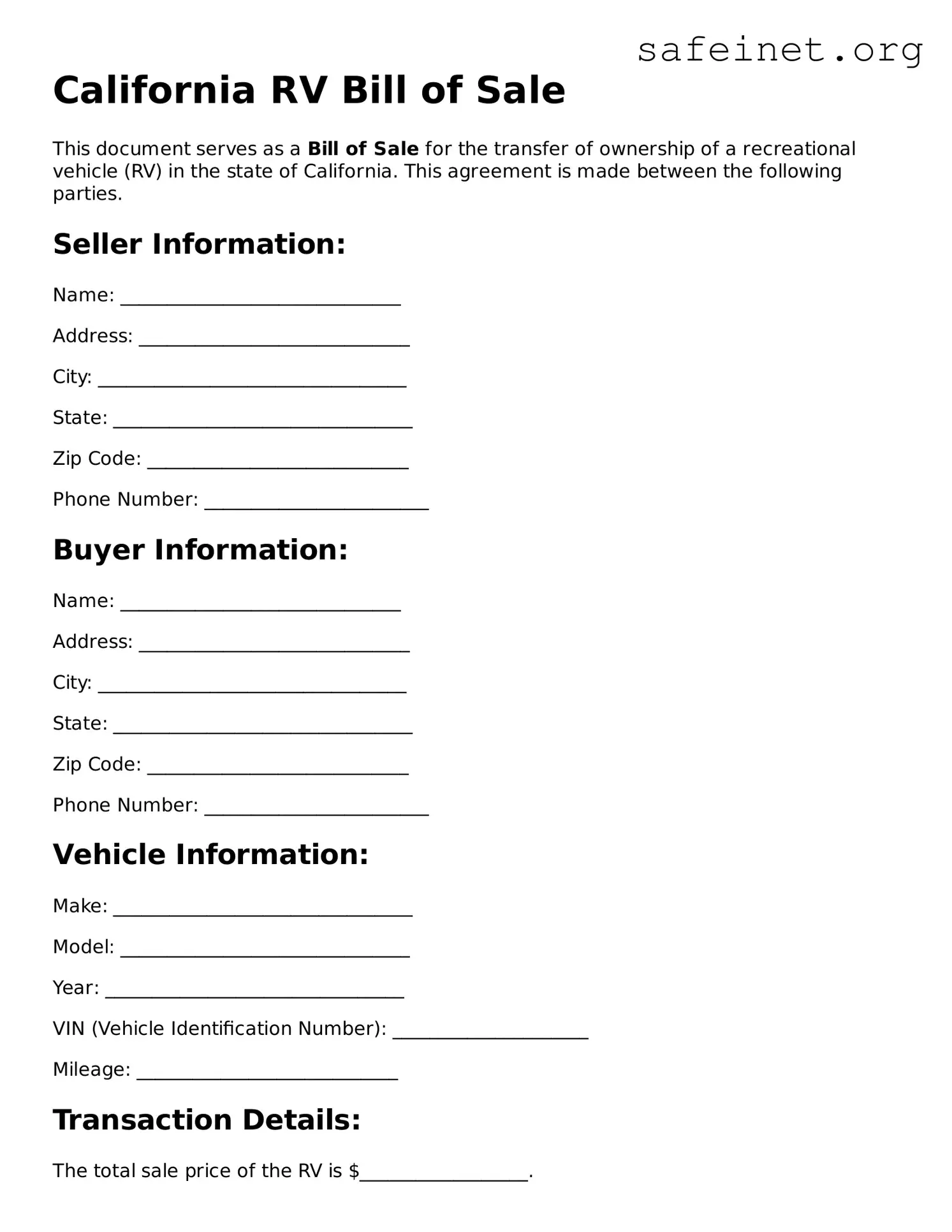California RV Bill of Sale
This document serves as a Bill of Sale for the transfer of ownership of a recreational vehicle (RV) in the state of California. This agreement is made between the following parties.
Seller Information:
Name: ______________________________
Address: _____________________________
City: _________________________________
State: ________________________________
Zip Code: ____________________________
Phone Number: ________________________
Buyer Information:
Name: ______________________________
Address: _____________________________
City: _________________________________
State: ________________________________
Zip Code: ____________________________
Phone Number: ________________________
Vehicle Information:
Make: ________________________________
Model: _______________________________
Year: ________________________________
VIN (Vehicle Identification Number): _____________________
Mileage: ____________________________
Transaction Details:
The total sale price of the RV is $__________________.
The payment method is: ____________________.
Conditions of Sale:
The seller certifies that:
- This vehicle is sold "as is" without any warranty.
- The seller is the legal owner of the RV.
- There are no liens or encumbrances on the vehicle.
Signatures:
The parties agree to the terms laid out in this Bill of Sale.
Seller Signature: ______________________________ Date: _______________
Buyer Signature: ______________________________ Date: _______________
Witness Information (if applicable):
Name: ______________________________
Signature: __________________________
Date: ____________________________
This Bill of Sale is governed by California state laws. For further reference, please consult the California Vehicle Code.
